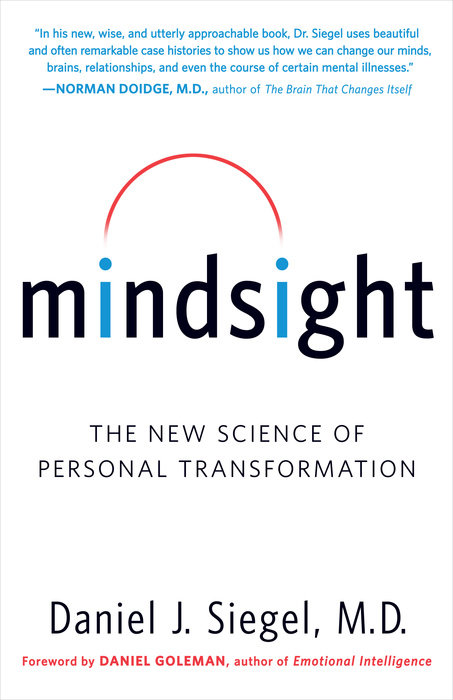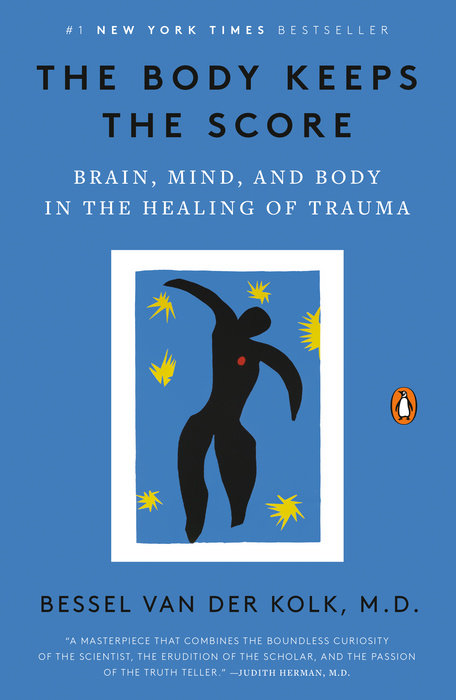YOU MIGHT ALSO LIKE
CLEAR ALL
BY TOPIC
BY TEACHER
BY TYPE
FILTER

TOPIC
- Anxiety (43)
- Personal Development (43)
- Self-Discovery (43)
- Depression (42)
- Self-Limiting Beliefs (30)
- BIPOC Well-Being (29)
- Self-Realization (26)
- Self-Healing (24)
- Self-Mastery (24)
- Resilience (23)
- Athlete Well-Being (22)
- Black Well-Being (22)
- Emotional Intelligence (EQ) (22)
- Neuroscience (21)
- Stress Management (21)
- Self-Acceptance (20)
- Self-Love (20)
- Spiritual Growth (20)
- Transformation (20)
- Awareness (19)
- Parenting (19)
- Growth Mindset (18)
- Trauma Healing (18)
- Well-Being (18)
- Authenticity (17)
- Mind-Body Connection (17)
- Relationship Challenges (17)
- Stress (17)
- Entrepreneurship (16)
- Fear (16)
- Finding Meaning (16)
- Meditation (16)
- Setting Limits and Boundaries (16)
- Goal Setting (15)
- Anger (14)
- Communication Skills (14)
- Happiness (14)
- Negative Self-Talk (14)
- Self-Actualization (14)
- Self-Compassion (14)
- Self-Esteem (14)
- Brain Health (13)
- Courage (13)
- Inner Peace (13)
- Search for Purpose (13)
- Spiritual Awakening (13)
- Suicide (13)
- Young Adult Well-Being (13)
- Confidence (12)
- Habit Formation (12)
- Habits of Mind (12)
- Imagination and Creativity (12)
- Journaling (12)
- Mindfulness (12)
- Mindfulness Practices (12)
- Self-Reckoning (12)
- Addiction (11)
- Cancer (11)
- Grief (11)
- Life Challenges (11)
- Mental Health Challenges (11)
- Positive Self-Talk (11)
- Self-Worth (11)
- Shame (11)
- Vulnerability (11)
- Anger Management (10)
- Empowerment (10)
- Failure (10)
- Identity (10)
- Presence (10)
- PTSD (10)
- Self-Control (10)
- Self-Pressure (10)
- Women’s Well-Being (10)
- Child’s Emotional Growth (9)
- Chronic Anxiety (9)
- Decision Making (9)
- Family Dynamics (9)
- Forgiveness (9)
- Human Potential (9)
- Neuroplasticity (9)
- Performance Anxiety (9)
- Physical Health (9)
- Psychology (9)
- ADD/ADHD (8)
- Buddhism (8)
- Community Healing (8)
- Compassion (8)
- Consciousness (8)
- Empathy (8)
- Gratitude (8)
- Inner Life (8)
- Intention (8)
- Motivation (8)
- Neurodiversity (8)
- Positive Thinking (8)
- Self-Expression (8)
- Talk Therapy (8)
- Creative Well-Being (7)
- Fellowship and Community (7)
- Female Empowerment (7)
- Joy (7)
- Leadership (7)
- Performance Pressure (7)
- Spiritual Development (7)
- Yoga (7)
- Affirmations (6)
- Belonging (6)
- Burnout (6)
- Focus (6)
- LGBTQIA Well-Being (6)
- Manifestation (6)
- Peak Performance (6)
- Psychology and Spirituality (6)
- Self-Reliance (6)
- Speaking Your Truth (6)
- Acceptance (5)
- Activism/Service (5)
- Asking for Help (5)
- Breathwork (5)
- Child’s ADD/ADHD (5)
- Cognitive Behavioral Therapy (5)
- Connection (5)
- Curiosity (5)
- Dysfunctional Childhood (5)
- Eating Disorders (5)
- Grit (5)
- Guilt (5)
- Identity Shifts (5)
- Inner Strengths (5)
- Intimacy (5)
- Letting Go (5)
- Loneliness (5)
- Memoir (5)
- Offering Support to Others (5)
- Romantic Relationships (5)
- Self-Discipline (5)
- Spiritual Life (5)
- Trauma (5)
- Unfulfilled Career (5)
- Values (5)
- Addiction Recovery (4)
- Children’s Well-Being (4)
- Clinical Depression (4)
- Despair (4)
- Disabled Well-Being (4)
- Disconnection (4)
- Divorce and Breakup (4)
- Endurance (4)
- Energy Healing (4)
- Enlightenment (4)
- Exercise (4)
- Healing Approaches (4)
- Latinx Well-Being (4)
- Mentoring (4)
- Mindfulness Meditation (4)
- Problem Solving (4)
- Productivity (4)
- Racial Healing (4)
- Racism (4)
- Shadow (4)
- Somatic Practices (4)
- Suffering (4)
- Veteran Well-Being (4)
- Visualization (4)
- Work Challenges (4)
- Work Relationships (4)
- Work-Life Balance (4)
- Zen Buddhism (4)
- AAPI Well-Being (3)
- Accepting Love (3)
- Adaptability (3)
- Child’s Trauma (3)
- Chronic Pain (3)
- Collaboration (3)
- Connection with Nature (3)
- Death or Loss of a Loved One (3)
- Diamond Approach (3)
- Embodiment (3)
- Forest Bathing (3)
- Friendship (3)
- Generosity (3)
- Global Challenges (3)
- Higher Calling (3)
- Inner Child (3)
- Integrative Medicine (3)
- Intuition (3)
- Jealousy/Envy (3)
- Jungian Analysis (3)
- Kindness (3)
- Lovingkindness (3)
- Men’s Well-Being (3)
- Military to Civilian Re-entry (3)
- Neuropsychology (3)
- Oneness (3)
- Panic Attacks (3)
- Passion (3)
- Perception (3)
- Prayer (3)
- Racial Discrimination (3)
- Social Anxiety (3)
- Social Responsibility (3)
- Spiritual Direction (3)
- Subconscious (3)
- Toxic Relationships (3)
- Zen Meditation (3)
- Abandonment (2)
- Aging (2)
- Attachment Theory (2)
- Autism (2)
- Biofeedback (2)
- Body Image (2)
- Child’s Anxiety (2)
- Chronic Health Conditions (2)
- Codependency (2)
- Comparing Belief Traditions (2)
- Criticism and Rejection (2)
- Cross-Cultural Dynamics (2)
- Dark Night of the Soul (2)
- Ego (2)
- Emotional Labor (2)
- Enneagram (2)
- Epigenetics (2)
- Facing Own Death (2)
- Freedom (2)
- Genetics (2)
- God (2)
- Holism (2)
- Hope (2)
- Hypnosis (2)
- Indigenous Well-Being (2)
- Integrity (2)
- Interdependence (2)
- Intergenerational Trauma (2)
- Laughter Therapy (2)
- Living with Illness (2)
- Love (2)
- Lovingkindness Meditation (2)
- Masculine/Feminine Dynamics (2)
- Neoshamanism (2)
- OCD (2)
- Optimism (2)
- Othering (2)
- Patience (2)
- Personality Typing (2)
- Positive Psychology (2)
- Race and Gender (2)
- Racial Identity (2)
- Racial Justice (2)
- Relationship with Money (2)
- Relationship with Time (2)
- Ritual (2)
- Sexuality (2)
- Shamanic Healing (2)
- Situational Depression (2)
- Sleep (2)
- Slumps (2)
- Social Psychology (2)
- Spiritual Healing (2)
- Spiritual Practices (2)
- Spirituality and Health (2)
- Synchronicity (2)
- The Divine (2)
- Tibetan Buddhism (2)
- Traumatic Grief (2)
- Trust (2)
- Academic Struggles (1)
- Acupressure (1)
- Altered States (1)
- Art Therapy (1)
- Astral Projection (1)
- Autoimmune Disease (1)
- Awe (1)
- Body Positivity (1)
- Building Character (1)
- Building Culture (1)
- Cannabis/CBD (1)
- Child’s Autism (1)
- Child’s Challenging Behavior (1)
- Climate Change (1)
- Collective Trauma (1)
- Compassion Meditation (1)
- Competition (1)
- Cross-Cultural Parenting (1)
- Death or Loss of a Parent (1)
- Dharma (1)
- Diet and Nutrition (1)
- Digital Life (1)
- Domestic Abuse (1)
- Doubt (1)
- Ecospirituality (1)
- Environmental Justice (1)
- Faith (1)
- Fatherhood (1)
- Flower Essences (1)
- Goddess (1)
- Guided Meditation (1)
- Healthy Eating (1)
- Heartmath (1)
- Highly Sensitive People (1)
- Humility (1)
- Imposter Syndrome (1)
- Incarceration (1)
- Indigenous Healing Approaches (1)
- Insight (Vipassana) Meditation (1)
- Insomnia (1)
- Inspiration (1)
- Learning Styles (1)
- LGBTQIA Children (1)
- Life Force Energy (1)
- Living as an Empath (1)
- Loss of an Animal Companion (1)
- Managing Energy (1)
- Marriage (1)
- MDMA (1)
- Memory (1)
- Narcissism (1)
- New Relationships (1)
- Non-Duality (1)
- Nutritional Medicine (1)
- Obsessions/Compulsions (1)
- Personality Disorders (1)
- Poetry (1)
- Post-Traumatic Growth (1)
- Poverty/Economic Inequality (1)
- Pregnancy and Childbirth (1)
- Psychedelic Research (1)
- Psychedelic-Assisted Therapy (1)
- Psychoanalysis (1)
- Quitting Your Job (1)
- Regret (1)
- Religious Experience (1)
- Rest (1)
- Sacred Feminine (1)
- Saturn Return (1)
- Science and Spirituality (1)
- Self-Hypnosis (1)
- Shamanism (1)
- Social Justice (1)
- Social Presence (1)
- Spiritual Quest (1)
- Storytelling (1)
- Sutras (1)
- Tarot (1)
- The Unconscious (1)
- Time Management (1)
- Transgender Well-Being (1)
- Transitions (1)
- Transpersonal Psychology (1)
- Unconscious Bias (1)
- Wake-Up Calls (1)
- Western Astrology (1)
- Whiteness (1)
- Wholeness (1)
- Youth Activism (1)
FILTER

TEACHER
- Debbie Ford (6)
- Karla McLaren (6)
- Daniel Goleman (5)
- Gabor Maté (5)
- John Bradshaw (5)
- Lisa Feldman Barrett (5)
- The Dalai Lama (5)
- Amy Morin (4)
- Brendon Burchard (4)
- Rick Hanson (4)
- Wayne Dyer (4)
- A. H. Almaas (3)
- Brian Tracy (3)
- don Miguel Ruiz (3)
- Ken Wilber (3)
- Maya Angelou (3)
- Naomi Osaka (3)
- Natalie Goldberg (3)
- Terri Cole (3)
- Alain de Botton (2)
- Andrew Solomon (2)
- Daniel Amen (2)
- Daniel J. Siegel (2)
- Edward Hallowell (2)
- Elizabeth Lesser (2)
- Eric Maisel (2)
- Gay Hendricks (2)
- Hyla Cass (2)
- Iyanla Vanzant (2)
- J. Krishnamurti (2)
- Jack Kornfield (2)
- James Hollis (2)
- Jessica Dore (2)
- Joanne Cacciatore (2)
- John Sarno (2)
- Jon Kabat-Zinn (2)
- Kelly McGonigal (2)
- Lama Tsultrim Allione (2)
- Lodro Rinzler (2)
- Michael A. Singer (2)
- Michael Phelps (2)
- Neil Pasricha (2)
- Oprah Winfrey (2)
- Panache Desai (2)
- Pema Chödrön (2)
- Ralph De La Rosa (2)
- Robert Augustus Masters (2)
- SARK (2)
- Stephen Mitchell (2)
- Adam Grant (1)
- Andrew Weil (1)
- Ashley Neese (1)
- Barbara Emrys (1)
- Bessel van der Kolk (1)
- Biet Simkin (1)
- Blaise Aguirre (1)
- Brené Brown (1)
- Chalene Johnson (1)
- Charlotte Joko Beck (1)
- Chip Conley (1)
- Connie Zweig (1)
- David Feinstein (1)
- Deepak Chopra (1)
- don Miguel Ruiz Jr. (1)
- Donna Eden (1)
- Eckhart Tolle (1)
- Elaine Aron (1)
- Elena Brower (1)
- Gangaji (1)
- Gary Zukav (1)
- Gaylon Ferguson (1)
- Gordon Neufeld (1)
- HeatherAsh Amara (1)
- Howard Thurman (1)
- James Baraz (1)
- James Doty (1)
- Jan Willis (1)
- Jana Long (1)
- Jay Shetty (1)
- Jean Houston (1)
- Jeff Brown (1)
- Jesus (1)
- Joe Dispenza (1)
- John C. Parkin (1)
- Jonathan Haidt (1)
- Judith Blackstone (1)
- Judith Orloff (1)
- Karen Casey (1)
- Kathlyn Hendricks (1)
- Kenneth Robinson (1)
- Leah Guy (1)
- Light Watkins (1)
- Lindo Bacon (1)
- Lise Van Susteren (1)
- Lori Gottlieb (1)
- Lorin Roche (1)
- Louise Hay (1)
- Mark Manson (1)
- Mark Nepo (1)
- Martha Beck (1)
- Michael Brown (1)
- Mihály Csíkszentmihályi (1)
- Monnica Williams (1)
- Mooji (1)
- Nancy Mellon (1)
- Nataly Kogan (1)
- Neale Donald Walsch (1)
- Nicole LePera (1)
- Noah Elkrief (1)
- Paramahansa Yogananda (1)
- Parker J. Palmer (1)
- Patanjali (1)
- Paul Gilbert (1)
- Philip Goldberg (1)
- Phillip Moffitt (1)
- Piero Ferrucci (1)
- Poppy Jamie (1)
- Ram Dass (1)
- Rich Fernandez (1)
- Ruby Wax (1)
- Rudolph Ballentine (1)
- Rumi (1)
- Russ Hudson (1)
- Sandra Ingerman (1)
- Sarah Powers (1)
- Scott Shute (1)
- Shakti Gawain (1)
- Sharon Salzberg (1)
- Shauna Shapiro (1)
- Simone Biles (1)
- Socrates (1)
- Sonia Choquette (1)
- Stanley Krippner (1)
- Stephanie Y. Evans (1)
- Stephen Cope (1)
- Stephen Covey (1)
- Steven Kotler (1)
- Tara Mohr (1)
- Tony Robbins (1)
- William Bloom (1)
- Yung Pueblo (1)











